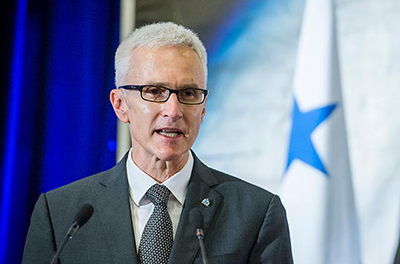Panama and Mexico signed a series of agreements during a regional security summit in Panama City, highlighting the push in Latin America to foster cooperation between nations in the struggle to combat organized crime.
Panama officials reported that the two countries signed 43 agreements aimed at controlling organized crime on the sidelines the Interpol Americas Regional Conference held in Panama City July 6-8.
Those bilateral agreements focused on the themes customs enforcement, migration, violence prevention, crime prevention, judicial cooperation, law enforcement, public security and terrorism. An overriding goal of the Interpol event was to improve capabilities to combat organized crime through greater cooperation.
Panama Security Minister Alexis Bethancourt said the exchange of information agreed with Mexico is an essential tool in the fight against organised crime, including support of ongoing investigations in both countries, Pánama América reported.
Insight Crime Analysis
In keeping with the theme of cooperation, Alexis Munoz Cerpa, head of Interpol’s Americas Desk, said “true security can only be achieved through a collective, regional effort by all the Americas countries … to tackle transnational organized crime together.”
Similarly, Interpol General Secretary Jürgen Stock told the conference that “no country, no region can cope alone with these security issues of a global nature”. Stock advocated a “coordinated global response based on a rapid exchange of information on criminal networks.”
There have been signs in Latin America of nations fostering greater cooperation to tackle the common problem of organised crime. Bolivia, Brazil, and Peru recently entered in to a trilateral agreement to create a joint Police Intelligence Center and coordinate operations in their border regions. On July 1, Brazil and Bolivia carried out a joint operation against international drug traffickers.
Brazil and Colombia expanded their security cooperation in May, agreeing to increase information sharing with regard to transnational crime. Those efforts include the deployment of additional personnel, language training aimed at bridging the Spanish-Portuguese gap and technology exchanges.
The Mexico–Panama agreement serves as yet another example of multilateral cooperation in the battle against criminal networks in Latin America. In a region so heavily plagued by transnational organized crime, countries sharing information and working together against this common threat makes perfect sense.
